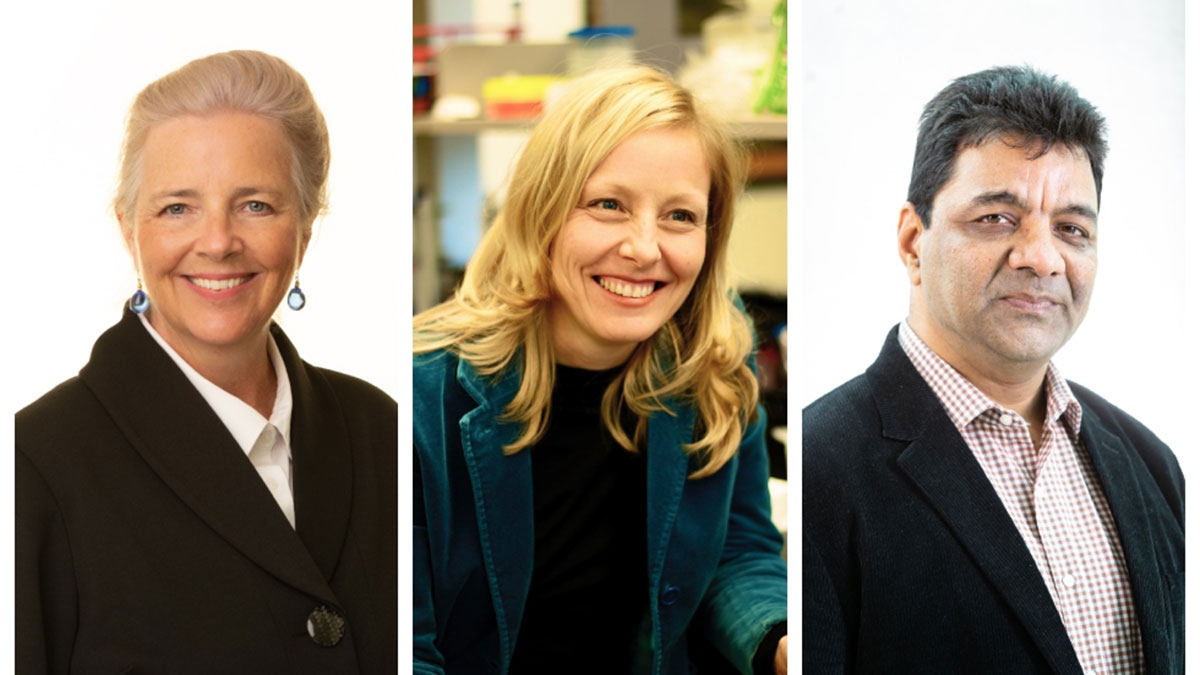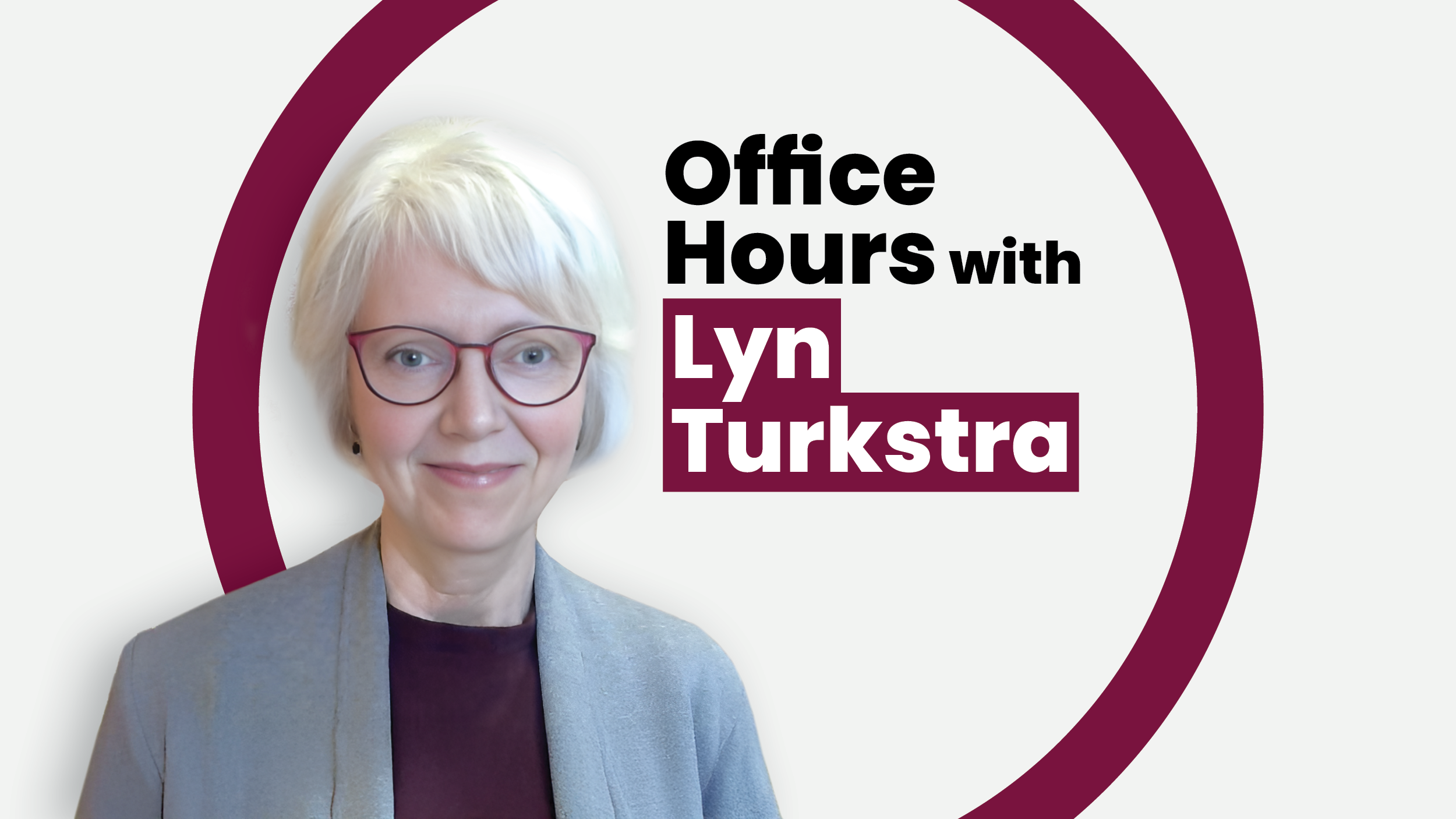Office Hours with Anand Swaminath

Anand Swaminath knows firsthand how inspirational people can be. After all, it was his relationship with his parents and wife that put him on a path to becoming a radiation oncologist.
The first to inspire Swaminath was his father, who worked as a psychiatrist. Swaminath was born in England, but grew up in London, Ont. after moving to the city in the mid ‘80s. It was here in Canada that Swaminath would gain exposure to the medical field.
“I got an opportunity to witness medicine firsthand through my dad. Through his connections I got to meet different people in different medical specialties,” says Swaminath, an associate professor with McMaster University’s Department of Oncology.
“My goal was to emulate my father’s footprints and become a physician myself.”
With an aptitude for math and science, Swaminath’s extended family wanted him to pursue a career in engineering. But Swaminath wouldn’t be deterred from his dreams of being a doctor. Instead, he would later find use for those innate skills in the medical field.
Inspiration strikes thrice
Swaminath’s second burst of inspiration would come courtesy of his mother. She helped him land a part-time job at the cancer centre she worked at. This is when, while trying to earn a few bucks during his summer vacation away from university, he had his first run-in with radiation oncology.
“I was doing what most students with medical school aspirations do during the summer. I was doing chart reviews, but it exposed me to a particular aspect of medicine I’d never been exposed to before. It resonated with me and I enjoyed doing the research at that time. So, I got exposed to not only a research career but also radiation oncology fairly early on.”
Radiation oncology is a medical speciality that uses high-energy radiation to treat cancer. Patients lie on a bed, similar to those used in a CT scan, and a radiation oncologist will prescribe and oversee administration of specialized X-rays that targets and kills cancer cells.
But it wasn’t until Swaminath met his now wife, who was a radiation therapist at the time, that the curtain was pulled back on just how technical the job can be – an aspect he enjoys thanks to his love of math and physics.
“You have to understand how radiation works, how it interacts with different tissues as the X-rays go through it, and how it then equates to radiation damage at a biological level or at a molecular level.”
Better cancer control, fewer side-effects
When Swaminath was late in his residency training, he attended a speaker series where American radiation oncology pioneer Robert Timmerman spoke about a radical new idea called stereotactic body radiation therapy (SBRT). At the time, the concept of a high-dose, precise radiation treatment method, which offered better cancer control with fewer side-effects, was in its infancy.
“This swashbuckling guy came in with his cowboy boots on, talking about these high-dose radiation treatment regimens called SBRT. We’re all sitting back thinking, how can you do this? Isn’t it risky? But he showed us the data proving it safe,” Swaminath recalls.
This changed everything for Swaminath. It opened his eyes to this revolutionary method of cancer treatment. So, like many bright-eyed researchers, Swaminath got to learning more about SRBT.
“I realized that this was a treatment technique that was on the cusp of adoption, but still needed a lot of evaluation. And that’s why I felt it necessary to do research to not only promote the technique but also to improve the evidence base and ensure that the technique and treatment gets adopted appropriately in different cancers and allows more access.”
Swaminath has since become instrumental in expanding its application in different types of cancer, including trials looking at SBRT and liver cancer, as well as SBRTand kidney cancer.
“We’ve done trials in evaluating SBRT in early-stage lung cancer too, comparing it to more conventional treatment where you give the treatment over several weeks,” he says. “We created basically a whole new indication for treating with radiation, which has been great.”
The power of mentorship
Swaminath now finds himself in a position to inspire the next generation of radiation oncologists as a mentor.
“Mentorship is really important because you need people to help you refocus, but who can also make sure you understand the nuance in the things that you do so that you can keep moving forward. Otherwise, you get stuck.”
He says learning from your setbacks and following your passion are the keys to success.
“One of the things that’s important to understand is when you’re doing research, sometimes you may have an idea that you’re working towards, and it may not exactly turn out the way you want it to. But if you’re passionate about doing something, try to focus on the task at hand and try to refocus when things are kind of getting out of your way.”
Faculty & Staff, Office HoursRelated News
News Listing

6 days ago

November 14, 2024

